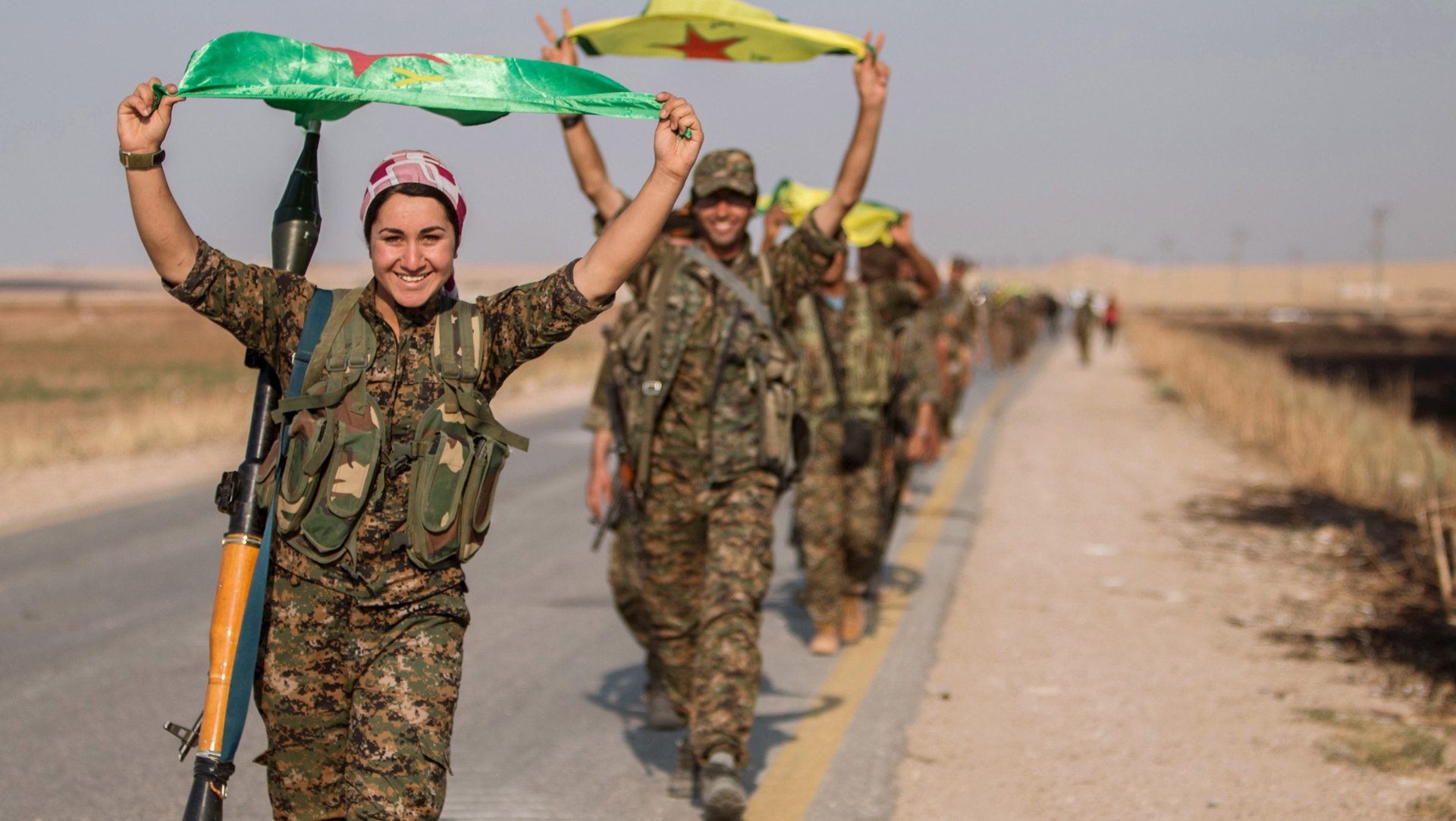Trump’s support of this Kurdish militia is going to make his meeting with Turkey very awkward
US president Donald Trump will sit down today with his Turkish counterpart Recep Tayyip Erdogan, for what promises to be a strained meeting.


US president Donald Trump will sit down today with his Turkish counterpart Recep Tayyip Erdogan, for what promises to be a strained meeting.
At the top of the agenda will be the YPG, or the People’s Protection units, a Kurdish militia. The US said last week that it’s providing weapons to YPG to help the group take Raqqa, the Syrian city that has become ISIL’s de facto capital. Turkey considers YPG a terrorist group, however, and condemned the decision, calling for a reversal.
YPG is only one of the acronyms that explain why US-Turkey relations are fraught, however. A look at the others reveals how complicated the situation is on the ground—and why Trump may have a difficult time appeasing his NATO ally.
SDF
On May 9th, the US Department of Defense said it was arming Kurdish fighters within the Syrian Democratic Forces, or SDF, a multi-ethnic force of Arabs, Christians, and Kurds fighting against ISIL. The SDF, said a Pentagon spokeswoman, “are the only force on the ground that can successfully seize Raqqa in the near future.” She did not mention YPG, but for all intents and purposes, “the Kurdish elements” slated to receive the arms are the YPG, says Aaron Stein, a senior fellow at the Atlantic Council, a research institute.
PYD
The PYD, the Democratic Union Party, is the political arm of YPG. The PYD is based in Syria, but it has ties to other groups in the region that seek more autonomy for Kurds, who have been a sidelined minority group in Turkey, Syria, and Iraq. While the PYD doesn’t want a separate Kurdish state, it has said it wants a certain degree of self-rule within Syria.
PKK
One of the groups the PYD is associated is the PKK, or the Kurdistan Workers’ Party. That group, which initially sought independence from Turkey, has been at war with the Turkish government almost nonstop for more than 30 years. Both Turkey and the US have officially designated it a terrorist group.
Although the PYD and the PKK have different policies, its leaders are part of the same superstructure and can move interchangeably, says Stein. YPG leaders admit they have links to the PKK, including a shared founder, but argue such connections don’t make them terrorists. But for the Turkish government, PKK is the same as YPG or PYD.
Trump’s calculation
For now, Trump seems to be putting the fight against ISIL above the US’s relationship with Turkey. The idea to arm the YPG has been around since the Obama administration, and experts agree that it’s the quickest way to take Raqqa. That would certainly put a check mark next to Trump’s campaign promise to quickly defeat ISIL, and give him a big victory at a time when he desperately needs one, says Bulent Aliriza, director of the Turkey Project at the Washington DC-based think tank Center for Strategic and International Studies.
But all of this is based on the assumption that YPG and the forces that fight alongside will be successful. If Erdogan has a bad meeting with Trump, Turkey could attack YPG forces in Syria and hamper US efforts in Raqqa. (Turkey feels so threatened by YPG that it bombed Kurdish fighters in Syria last month, killing at least 14 and wounding dozens of others.) Erdogan could also bar US planes on Syrian missions from taking off and landing at Incirlik base in southern Turkey, adds Aliriza.
Siding with the YPG could also create problems for the Trump administration down the road even if ISIL is defeated in Syria. While the US had been giving arms to the group through the SDF, sending them directly may give the Kurds the impression that they have US backing, according to Aliriza. That perceived legitimacy would embolden their negotiating position in the configuration of a democratic Syria, if that ever happens.
In the meantime, Trump will likely focus on the difficult task of managing Erdogan’s anger.